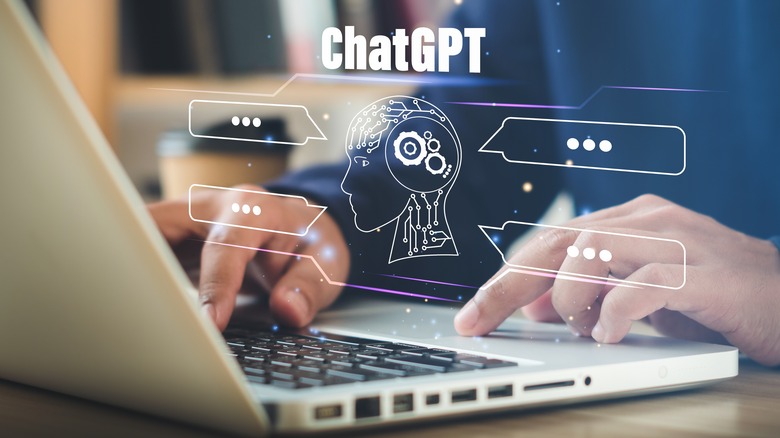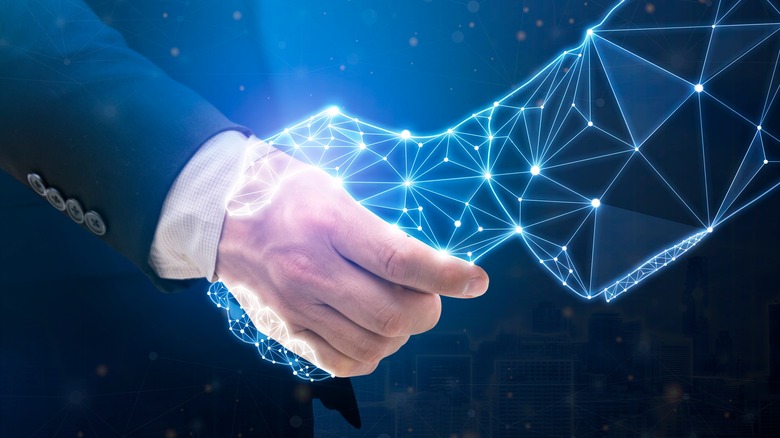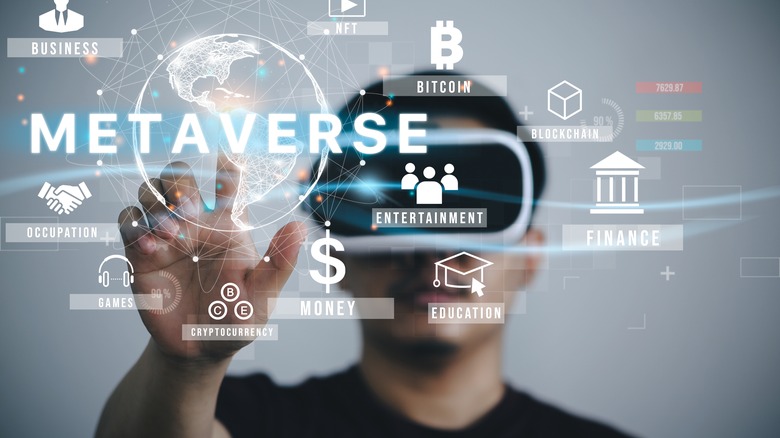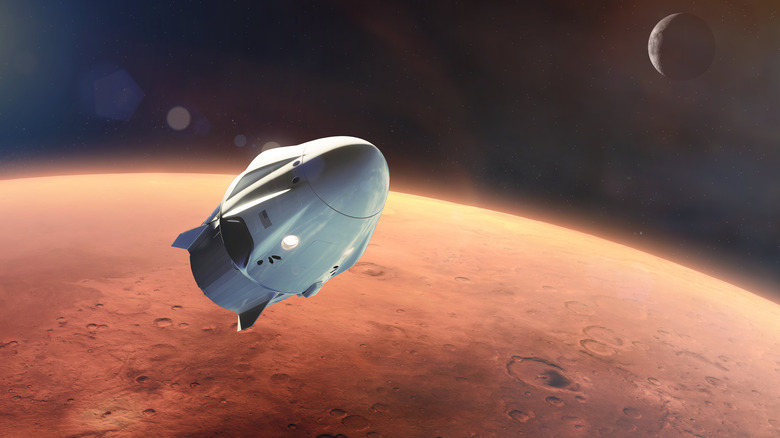We Asked ChatGPT What The Future Of Technology Will Look Like. We're Not Ready For It
All of SlashGear's content is written and edited by real, live humans. We do not use AI chat tools to write our content.
OpenAI's ChatGPT has taken the internet by storm. The AI chatbot revolutionized the way many people perceive artificial intelligence, making it more approachable to the general public. However, it also left many fearing a future where AI takes over. Since it first opened up to the public, the Microsoft-backed ChatGPT has been a constant topic of conversation online. The bot is remarkably advanced. Students turn to it for help with their homework or essays, which leaves many teachers stumped about plagiarism. Similarly, many people have used ChatGPT to write songs or stories. Some publications have already started publishing articles written by the bot, or at least with its help, although efforts are being made to detect AI content. OpenAI itself has released a tool that flags content written by AI, but it's not flawless.
Microsoft is taking ChatGPT a few steps further by integrating it into Microsoft Edge and Bing. Considering how much ChatGPT can do, many doomsayers are predicting that it will take over our jobs. Similarly, some people worry that when AI gets too smart, the world might be in trouble. What does ChatGPT think about this? To settle the matter, we asked ChatGPT what the future of technology might look like, but its responses did little to allay some of those fears.
ChatGPT thinks the future of tech lies in AI
We first asked ChatGPT to describe the future of technology in detail. The bot gave us a lengthy response. It believes that future technologies will revolutionize the way we live, work, and communicate. ChatGPT told us: "We will see the development of advanced robotics, artificial intelligence, quantum computing, and augmented reality. In the future, technology will become increasingly integrated into our daily lives and will be designed to seamlessly blend into the environment around us."
ChatGPT sounds like it's on the right track here. It details its vision for the future of technology further, describing the emergence of smart homes, cities, and transportation systems. We're already beginning to see this in our daily lives what with voice assistants like Amazon's Alexa being integrated with various smart home devices, from security cameras to refrigerators. It's easy to imagine that this will only continue as the tech continues to develop.
According to the chatbot, future homes will let us control the temperature, lighting, and security of our homes with just a voice command or with the help of a smartphone. Wearable devices will provide real-time insight into our health and well-being, and then take it a step further by offering personalized recommendations. Self-driving vehicles and drones will improve transportation. The bot also places some emphasis on developing sustainable and eco-friendly technologies. Once again, a point for ChatGPT — being eco-friendly is likely to become more and more crucial as the years go by.
Our daily lives may change significantly
ChatGPT predicts that the development of technology will affect our daily lives in a major way, making them more efficient and convenient. All of this ties in to what was said above. As smart tech becomes ingrained in the lives of more and more people, a lot of tasks may grow easier and be replaced by helpful AI.
It won't stop there, though. ChatGPT says: "We will also see the emergence of advanced virtual and augmented reality technologies that will transform the way we work, learn, and entertain ourselves." This could very well mean the metaverse. The used of augmented reality tech could bring the metaverse to the next level, allowing for remote meetings held in what feels like a realistic meeting room. Using AI, on the other hand, is already transformative in international meetings. For example, some companies are working on adding real-time AI translation.
ChatGPT predicts major leaps in space exploration
When asked about what new tech we might see in 50 years, ChatGPT paints a very futuristic, but plausible picture. The bot sugests that the new technologies will "fundamentally transform the way we live, work, and interact with the world around us." Once again, we're circling back to artificial intelligence, which will become much more advanced than it is now. ChatGPT claims that AI will be able to carry out complex tasks, including advanced problem-solving, decision-making, and creativity. Just imagine ChatGPT on steroids — this is pretty much what the bot is suggesting here.
Space travel is also likely to make some huge leaps in the next 50 years, ChatGPT believes, including new space habitats and systems that could help us colonize other planets. With Elon Musk's plan to colonize Mars, it very well might happen, although those plans seem to be an ever-moving goalpost.
Biotechnology and nanotechnology are two more areas that are likely to evolve within the next 50 years, according to the Microsoft-backed chatbot. We might see the emergence of new medical treatments. Hopefully, we will be able to cure diseases that are incurable as of today. New developments in genetic engineering might bring on the creation of new synthetic lifeforms. As for nanotechnology, we're likely to see ever-smaller, faster, and more efficient systems and materials.
Quantum computing is also expected to make leaps and bounds, with new architectures supporting grand discoveries and breakthroughs in various fields. Once again, AI is going to play a part here.
There are some downsides
It's not all sunshine and rainbows, however. We asked ChatGPT if there were any negative consequences of the advancement of technology, and it had a fairly detailed response for us. It confirmed some of our worst fears, too.
"One of the biggest concerns is the potential for technology to displace jobs, leading to unemployment and income inequality," said ChatGPT. The bot is not wrong — just the emergence of ChatGPT made many people worried about the potential of AI. Employees may one day find themselves replaced as AI evolves and learns to be more creative. The bot also notes that data breaches may be common in an age when personal information is increasingly digitized. Unfortunately, technology also serves to promote a sedentary lifestyle as it keeps our eyes glued to screens, which, as ChatGPT notes, could affect both physical and mental health.
Lastly, the bot mentions the potential for misuse: "There are several potential areas where AI could be misused, such as the development of autonomous weapons and other military applications, where AI-powered systems may make decisions without human intervention." It's hard to deny that this is a scary prospect. Often portrayed in sci-fi movies, the imagined AI takeover could have grave consequences for humanity. Fortunately, we are not at that point yet, and you can freely amuse yourself by asking ChatGPT various questions.




